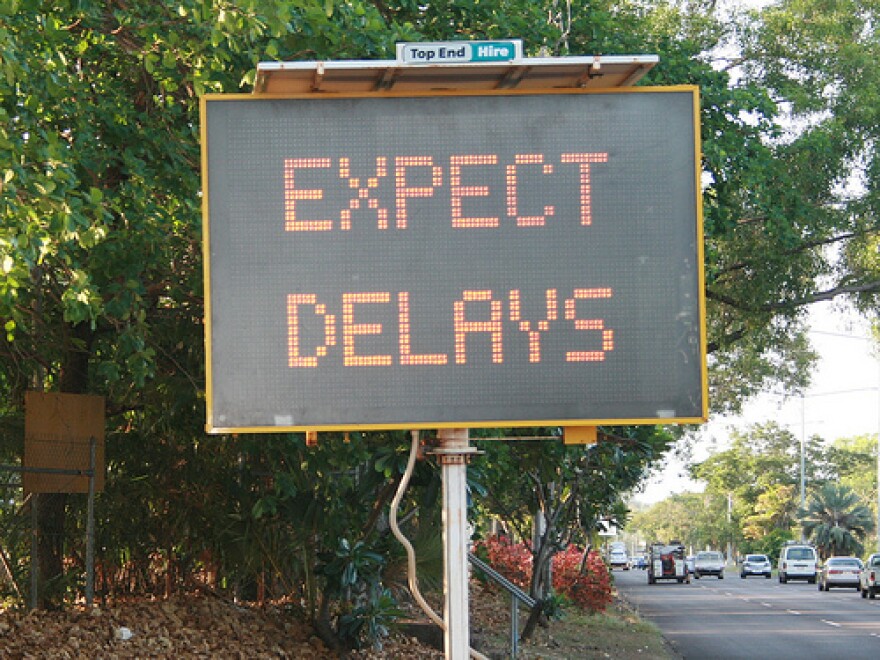Veteran broadcaster Jay Solomon is an occasional contributor to First Coast Connect.
Expect delays. The city was doing road work in our neighborhood, and had placed a flashing sign by the road, where traffic was backing up in front of me. “Expect delays,’ it blinked. No word on how long or a detour, thus making the message not only a warning but a self-fulfilling prophecy.
“Expect delays,” it repeated. As I stared, a more elegant message bubbled into consciousness: “truly, expect delays.” They’re inevitable. They will occur no matter what we do, so anticipate them, think about them in advance, and plan for them.
Now, there are delays and there are delays. Consider Moses spending 40 years wandering in the desert. But I think the blinking message is more about the every-day delays: heavy traffic, road construction, getting out of the parking lot after a concert, or long lines at the super market. More mundane and frequent, these are the ones that really seem to bug us and suddenly bring us to a state of impatience or worse.
We Americans have a “wait” problem. We hate to wait for just about anything. There’s actually a lot of research in this area saying our need for speed can threaten our health and safety. The studies say the tightly-wound ”type A” personalities are the most likely to be affected.
Now, I’m not a type A, but I can be very impatient. I think type A’s can pass on their symptoms to the rest of us, though, and that the problem is contagious. Experts report one action can spawn many reactions. Think about Butler Boulevard or the Buckman Bridge, where aggressive driving prevails, and impatience is just a finger gesture away from road rage. Research shows impatience is in the DNA of aggressive driving, and aggressive driving is a leading cause of fatal accidents.
Interestingly, extensive surveys indicate that in a lot of ways we’re okay with that. We, as individual drivers, rationalize that it’s okay to speed if we’re late for an appointment – that stretching a red light is acceptable if our kids are waiting to be picked up. The fact that some, while trying to be on time, can cause accidents doesn’t seem to enter the equation.
Expect delays. Rome wasn’t built in a day. FedEx is occasionally late. Traffic will be terrible somewhere every day. But waiting does eventually pay off: women did get the vote, and one day they’ll get the presidency; the Berlin Wall did come down; grades do go up; the mail will arrive; lovers will find a way; the waiter will bring the drinks; and the Jaguars will have winning seasons again… sometime.
Expect delay. It’s good for you. Impatience can lead to anxiety, which can lead to high blood pressure. Impatience can produce enough stress to cause your body to shoot adrenaline. That’s good for when you’re being chased by a lion, certainly, but not good if you’re behind the wheel and adrenaline is fostering hostility.
Expecting delays provides the opportunity to avoid them: take an alternative route or travel at a different time to avoid traffic; tailgate after the game to allow the crowd to clear; vote absentee to miss Election Day lines; avoid restaurant waits by calling ahead for carry-out.
Stalled in traffic? Assess the situation; recognize it may make you late, but that there’s nothing to be done about it. Take a deep breath, and relax. Embrace the delay. Turn it into an unexpected time out. Keep your eye on the road but let part of your mind go on a tiny vacation. Think about an experience you really enjoyed, a book you’re reading, a TV series you’re watching or hum a song you love. Think about a time when a delay turned out to be a good thing.
With all due respect, I'm Jay Solomon.

